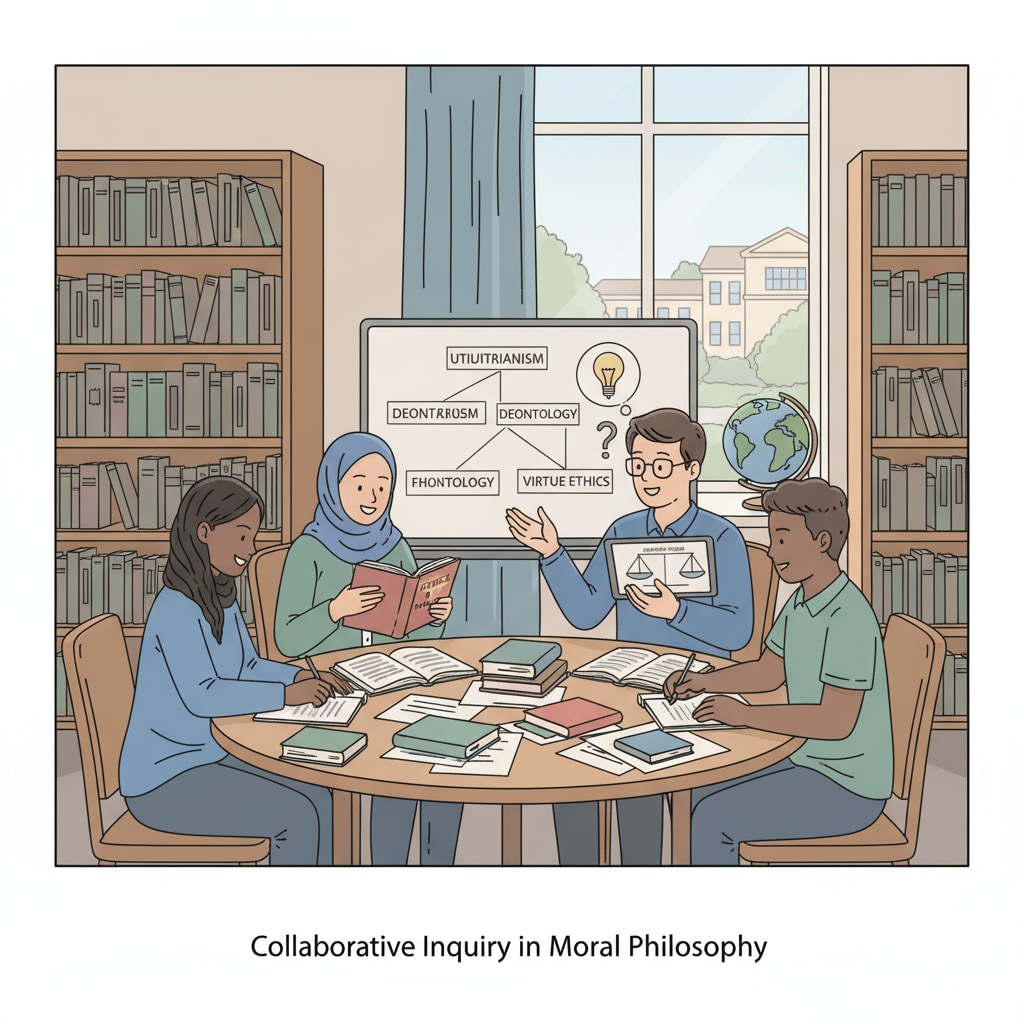Moral philosophy, ethics, empathy, and social responsibility are integral aspects that are often sidelined in the current educational landscape. In an era where academic achievements and career readiness take center stage, the significance of moral and ethical education is frequently underestimated. However, integrating moral philosophy into K12 curricula can have far-reaching positive impacts on students’ development.

The Neglected Realm of Moral Philosophy in Education
Currently, the education system is predominantly focused on preparing students for standardized tests and future careers. As a result, subjects like moral philosophy and ethics are often pushed to the margins. This neglect is unfortunate because these disciplines offer unique insights into human values, behaviors, and relationships. For example, moral philosophy helps students understand the principles that govern right and wrong, while ethics guides them in making morally sound decisions. According to Wikipedia’s entry on moral philosophy, it encompasses various theories and perspectives that can enrich students’ understanding of the moral world.
The Role of Moral Philosophy in Cultivating Empathy
Moral philosophy serves as a powerful tool for developing empathy in students. When students study different moral theories and case studies, they are exposed to diverse perspectives and experiences. This exposure allows them to step into the shoes of others and understand their feelings and motivations. For instance, exploring the concept of utilitarianism, which emphasizes the greatest good for the greatest number, can prompt students to consider the impact of their actions on a broader scale. This kind of thinking nurtures empathy, as students learn to value the well-being of others. As stated in Britannica’s article on ethics, ethical discussions often involve understanding the experiences of different individuals, which is essential for empathy development.

Moreover, moral philosophy encourages students to engage in critical thinking about moral issues. Through debates and discussions, they learn to analyze different viewpoints and understand the reasons behind people’s moral stances. This process not only deepens their understanding of moral concepts but also enhances their ability to empathize with those who hold different beliefs.
Fostering Social Responsibility through Moral Philosophy
Another significant benefit of incorporating moral philosophy into K12 education is the cultivation of social responsibility. When students are taught about moral obligations and the common good, they are more likely to feel a sense of duty towards society. For example, learning about environmental ethics can inspire students to take action to protect the planet. They may become more conscious of their consumption habits and actively seek ways to reduce their environmental impact. This shows how moral philosophy can translate into real-world actions that contribute to the betterment of society.
In addition, moral philosophy instills in students a sense of justice and fairness. By studying concepts such as equality and human rights, students develop a desire to address social inequalities. They may be motivated to participate in community service projects or advocate for positive social change. This active engagement in social issues is a clear indication of the development of social responsibility.
In conclusion, moral philosophy and ethics should be an essential part of K12 education. By cultivating empathy and fostering social responsibility, these disciplines can help create a generation of students who are not only academically proficient but also morally and socially conscious. It is high time we recognize the importance of moral philosophy in shaping a more inclusive and harmonious future society.
Readability guidance: This article uses short paragraphs and lists to summarize key points. Each H2 section provides a clear focus. The passive voice and long sentences are kept to a minimum, and transition words are used throughout to enhance the flow of the content.


